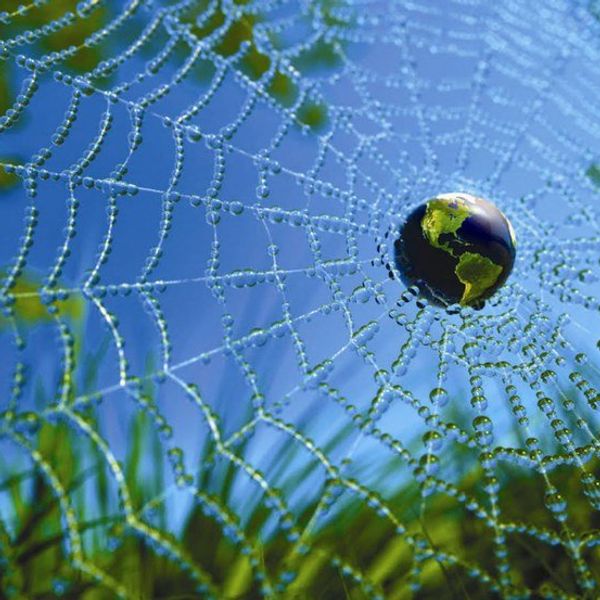There is only one Earth, and we all must share it. Humans and the Earth have coexisted for millions and millions of years― this planet being our host, providing us with the necessities required for survival. As we, humans, have evolved for the better (questionable statement), the Earth has slowly been devolving due to our poor choices regarding the environment. As of present, the environment has many issues, including but not limited to, pollution of air, water, and soil, global warming, improper waste disposal, and ozone layer depletion, among others. This is the land we were born into, and it is our inherent duty to protect it.
It is important to address the reasons as to why people do not participate in protecting the environment. There is a recurring motif between people, the primary reason being the inconvenience. For many people, there is no access to a curbside collection of recyclables. More concerning is that large cities and municipalities offer no sort of service for recyclable materials. In suburban Pennsylvania, my family’s garbage pick-up also has a bin to collect recyclable materials.
By the end of each week, the tall bin is filled to the brim with bottles and paper products. Imagine if every household or apartment complex had an equal number of recyclables as my family. Since there is no service for it, all of those recyclable materials are being disposed of through the regular garbage. This negatively impacts the environment as a whole, since certain recyclable items can contaminate the ground and water if not treated properly. Furthermore, even if people wanted to help the environment, they would be forced to go out of their way to recycle, and evidently, people are too lazy to take these steps. Another issue is the confusion behind recycling.
People claim that they do not recycle because they do not understand some of the “rules." For example, a recycling bin can take paper, but pizza boxes with food residue must be disposed of regularly. As a result, people either do not recycle, or they throw it in the bin regardless, assuming that it is allowed.
National Waste & Recycling Association President and CEO Sharon Kneiss said, "Part of the reason for contamination is what I call 'aspirational recycling' — where people with the greatest intent believe you should be able to recycle this, so the logic is, the processors will figure it out. It just unfortunately doesn't work that way." Some people recycle, some do not, while others simply do not understand. The question presented: is this an obligation?
Henry David Thoreau was one of the first environmentalists, believing that humans are consuming the earth, when it is our responsibility to uphold it. He laid the foundation for present-day environmentalists, and his writings on nature, particularly "Walden," continue to influence people. I agree with Thoreau’s belief, because if we do not prioritize the environment, then who will?
Thoreau had a strong dislike for wastefulness. He once said, “Thank God men cannot fly and waste the sky as well as the earth." In "Walden," Thoreau spoke of simplifying one’s life— turning away from excess and focusing solely on the necessities. More than ever in today’s society, people are obsessed with having the newest trend. People buy a new iPhone, just to forget about it and purchase the one that comes out next year. It forms a vicious cycle of consumption and waste, which is an analogy between a human’s exploitation and the environment. People consume whatever is available to them, and then they throw it away in the garbage, which ironically increases the ever-rising recycling issue. We all suffer from tunnel vision— we focus on the resources we need right now and fail to see the long-term effects. Few people realize that, according to various sources, the Earth will be unsustainable in the next few decades. The main causes are due to the depletion of natural resources and freshwater, rising population levels, and a decrease in wildlife. That is why it is crucial to begin living wisely. We, as citizens of this planet, must take the steps to protect our home, or in a few short decades, it no will longer be.
When you are a guest in another person’s home, surely you would never damage their property. A moral person would act with respect, treating their host’s possessions carefully. The Earth is not only our home— it is shared amongst all of the citizens and animals. In this sense, it is our responsibility to collectively take care of it. Our actions go further than just affecting us. Every time we do not recycle, we smash a plate in the house of our host. Every time we litter, we throw garbage on the floor of our host’s home. Each and every single time we pollute the Earth, we set the house of our host on fire, and we do not care that it is burning. We are reaching the point where we must stop being selfish, because there is still time to try reversing our actions. Thoreau once wrote, “Not till we are lost, in other words not till we have lost the world, do we begin to find ourselves, and realize where we are and the infinite extent of our relations.” A dire situation allows us to evaluate our decisions and take a course of action. When we have reached the very bottom, we can either give up or look up. I suggest the latter.
“Live in each season as it passes; breathe the air, drink the drink, taste the fruit, and resign yourself to the influence of the earth,” (Thoreau).





















